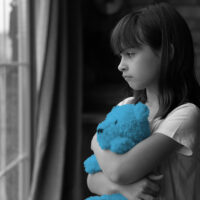Looked after children
-

Unlocking Children’s Internal Worlds: 25 Years of the Story Stem Assessment Profile (SSAP)
Dr Saul Hillman – For more than 25 years, we have been training professionals in the use of the Story Stem Assessment Profile (SSAP), a powerful and nuanced tool designed to help us understand the internal worlds of children aged 4 to 10 years old.
Read more -

Assessing and understanding trauma: bridging the gap between research and practice
The session will provide a bridge between research and clinical contexts of measuring trauma and adverse life experiences in looked-after children populations. Dr Saul Hillman, Richard Cross, and Katharine Anderson present
- Event type
- Talk with Q&A
- Location
- LIVE STREAM
-

Mental health and care-experienced young people: are our mental health support services appealing and accessible?
Children in care are much more likely to experience mental health problems than young people in the general population. Early life experiences, such as abuse, neglect, parental drug-use or violence likely play a major part in this. So too could the instability that is often inherent in the care system.
Read more -

Secondary data analysis of social care records to examine the provision of mental health support for young people in care
Open Access paper from JCPP Advances – ‘Using routinely collected social care data, we explored the provision of mental health support for 112 young people in care in the UK.’ Alice R. Phillips (pic) et al.
Read more -

Neural correlates of face familiarity in institutionalised children and links to attachment disordered behaviour
Video abstract from Paula Oliveira on her JCPP paper ‘Neural correlates of face familiarity in institutionalised children and links to attachment disordered behaviour’.
Read more -

Research Review: Integrated healthcare for children and young people in secondary/tertiary care – a systematic review
Open Access paper from the JCPP – ‘This systematic review synthesises and evaluates the evidence for effectiveness and cost-effectiveness of integrated care for children and young people in secondary and tertiary healthcare settings.’ Naomi Pygott et al.
Read more -

The adult outcome of childhood quasi-autism arising following extreme institutional deprivation
Open Access paper from the JCPP – ‘Here we provide the first detailed analysis of the adult outcomes of the group of institutionally deprived-then-adopted children identified as displaying quasi-autism.’ Maria Rodriguez-Perez et al.
Read more -

Neural correlates of face familiarity in institutionalised children and links to attachment disordered behaviour
Open Access paper from the JCPP – “Compared to children from the community, institutionalised children showed smaller amplitudes in the N170, to both stranger and caregiver faces. Amongst the institutionalised group, living in a setting with a higher children-to-caregivers’ ratio was associated with smaller P400 amplitudes”. Paula Oliveira (pic) et al.
Read more -

Adverse childhood experiences: what support do young people need?
Recent research funded by the National Institute for Health and Care Research (NIHR) identifies the types of support young people feel they need from services, and offers ways to support the mental health of children in care and those adopted from care.
Read more -

Complex PTSD in young people in care
Aishat Hamzat, Rachel M Hiller and Helen Minnis discuss what research tells us about the mechanisms underlying complex PTSD symptoms experienced by young people in care. They consider implications for treatment and broader support provided for these young people
Read more